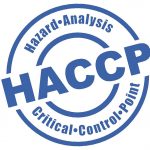Recall—it’s a word that strikes fear in the hearts of CEOs, food safety professionals and the general public. At the 2023 Food Safety Consortium, Roger Hancock, CEO of Recall InfoLink, joined Matt Regusci and Francine Shaw, co-hosts of the “Don’t Eat Poop” podcast, to discuss the challenges in handling food recalls and the importance of taking steps now to make the recall process faster and more efficient.
Hancock launched Recall InfoLink, a supply chain process management system, after spending 15 years leading food safety and quality at Albertson’s, where he managed roughly 250 recalls per year. His goal was to improve how companies manage recalls, making the process easier and faster, and ensuring that the right message gets to the right people at the right time.
“Faster is better,” said Hancock. “For a CEO, the brand isn’t as exposed in the media, the cost will be fairly low and liability contained. For the consumer, faster means maybe I didn’t buy it because it was already pulled from the shelves or, if I bought it, I took it out of my pantry before I ate it.”
When recalls happen slowly or over time, the problem isn’t typically with individual companies and how they perform the recall. “The problem is between companies,” said Hancock. “The bigger the recall, the more companies that get involved in passing data from place to place, and that tends to slow things down. And you can imagine a game of telephone where the message consistency changes and problems start to escalate.”
He seeks to solve this problem by building what he calls a “recall-ready community.” “Our concept is if preparedness is done as a community—or as a supply chain—then those gaps can be identified ahead of time,” said Hancock. “So, when everybody’s hair is on fire and a recall is happening, they’re not having to solve problems that they’ve already identified and solved…Every recall is unexpected and unplanned, so to make them fast and easy requires practice and being ready.”
During the conversation, Hancock shared the most challenging recall he was involved in during his 30-year career. “It was the first and only mad cow disease (BSE) recall in the U.S.,” he said. On December 23, 2002, Albertson’s found out that a BSE-positive cow was in its supply chain. “I spent from December 23 to end of January documenting the recall. It was nightmare,” said Hancock. “There was a lot of concern/fear about mad cow disease at the time and there was a cow that had tested positive for BSE in our supply chain. There were no protocols for how to handle it. There were no regulations around how to handle it. So, it was very complex.”
Hancock did point out that, despite the high number of food recalls happening every year, very few pose a risk to human health. “Most recalls remove products that have a problem or defect that isn’t really going to hurt anyone, but for business or compliance reasons probably needs to get out of the supply chain. So only a fraction of recalls that happen actually pose a risk to people,” he said.
This raised the question of recall fatigue and whether businesses and consumers have become complacent. “Some of our clients choose to notify their customers out of courtesy that they didn’t buy the recalled product. And what we find is that too many of those courtesy notifications end up creating a habit of, ‘I don’t need to look at this.’ So, there is a risk there. And as I’m listening to all of the focus on consumer notification, I worry about that same risk. As we think about consumer notification and even streamlining business communication, it takes a savvy person to know how to do it correctly, so that you don’t have unintended consequences of either people ignoring the notification or of creating a panic.”
Listen to the full episode here and join us October 20-22 at the 2024 Food Safety Consortium in Washington, DC.:







